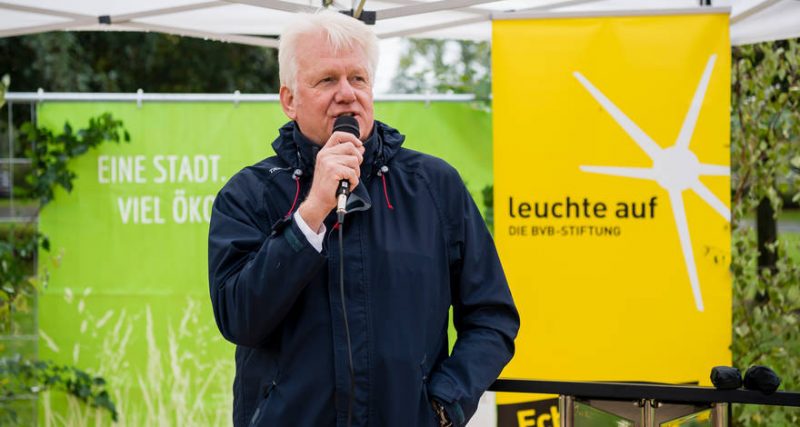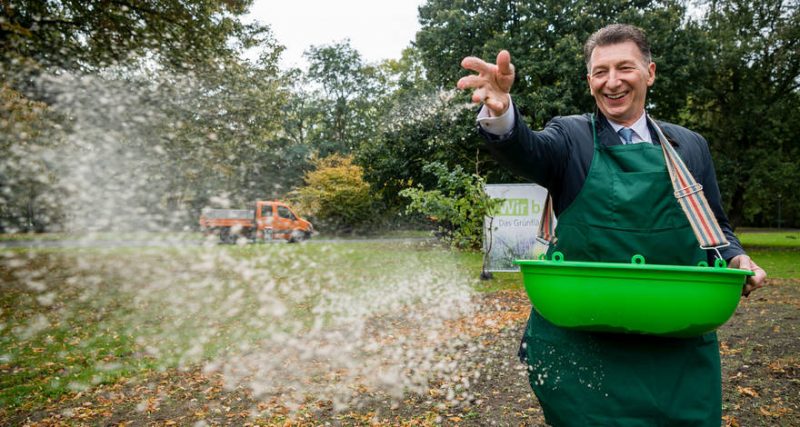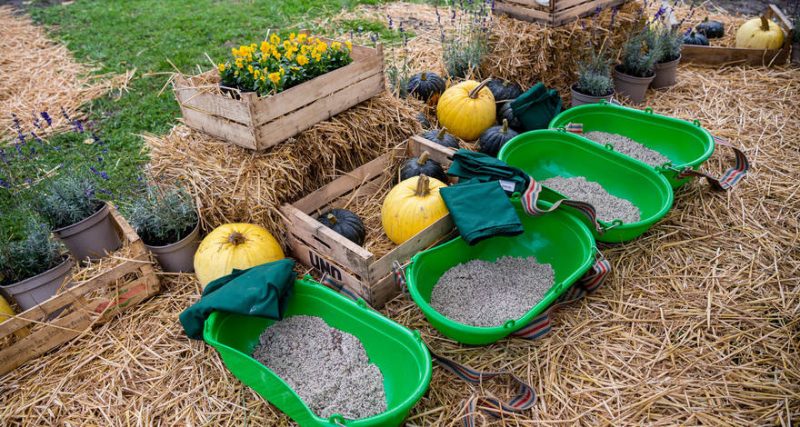There are already several green areas near the stadium and around the Westfalenhallen event and exhibition centre, but…
There are already several green areas near the stadium and around the Westfalenhallen event and exhibition centre, but until now, they have not been as diverse and rich in species as they could be. Now, thanks to Borussia Dortmund, that is going to change.
The newly formed parks and gardens department of the city of Dortmund has already set itself the task of making the urban green spaces as close to nature as possible. Where feasible, meadows of various types of wild flowers are to offer new habitats, especially for native insects – with a rich supply of food and diverse life opportunities in harmony with nature.
“Dortmund is fighting against the decline in biodiversity and the associated insect deaths. This is a serious issue for the future – worldwide and also in Germany,” says mayor Ullrich Sierau. More than 25,000 species of insects are native to the state of North Rhine-Westphalia. They are important for ensuring that the cycle of materials isn’t held up. “Over the past few years, more than 200 hectares of intensively mowed lawns have been converted into meadow areas throughout the city. And there will be many more hectares to come – as is now the case here,” emphasised the mayor.
The city of Dortmund – in particular, the parks and gardens department and environmental office – is working with several partners. Some of the latest additions are Borussia Dortmund, SIGNAL IDUNA and the beekeepers in the district. They want to dedicate themselves to a project area between the B1 in the north, Bolmke in the south, the Westfalenpark in the east and Wittekindstraße in the west.
Borussia Dortmund is making a contribution through the Foundation and KidsClub
When it comes to Borussia Dortmund, the project is to be supported from the outset together with the BVB KidsClub members from Dortmund and the surrounding area. Beekeepers are to be supported in the construction and installation of bee hotels or ecological education campaigns, for example. Mascot EMMA, Germany’s best-known bee, will also draw attention to bee protection and the life of bees.
“We are aware that we too have an environmental impact and have to do justice to the responsibility that comes with that. It is a firmly established part of our sustainability strategy that we want to improve our ecological footprint,” explains Carsten Cramer, managing director of Borussia Dortmund and board member of the BVB “leuchte auf” foundation. “However, there are a lot of things can only be achieved as part of a team, which is why we are pleased to cooperate with strong partners such as SIGNAL IDUNA, the city of Dortmund and beekeepers in the district of Dortmund on this project.”
SIGNAL IDUNA and Dortmund’s beekeepers
The grounds of the SIGNAL IDUNA Group with their old tree population are already well known for providing several animal species important food sources and reproductive potential. In order to promote biodiversity even further, the site is to be developed into a natural and ecologically valuable habitat with native plants and targeted nature modules.
“By keeping the green areas on our company premises natural, we are not only ensuring valuable habitats for native animal species, but also creating an exciting and pleasant working environment for our employees,” says Ulrich Leitermann, CEO of the SIGNAL IDUNA Group.
In order to increase public perception of the issue of bees and wild bees even further, the Dortmund district beekeepers want to develop a bee information centre in the park on Maurice-Vast-Strasse. A classroom under the open sky, a bee educational trail with extensive information in words and pictures, also on beekeeping – ideas like this can be developed and brought to life here in cooperation with Borussia Dortmund.
Most of the planned projects are expected to be completed by the summer of 2021. The results will be presented to the public later in the course of a special “bee day”.








